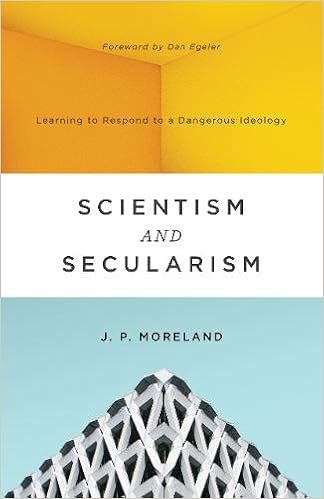 From a review of J. P. Moreland’s Scientism and Secularism: Learning to Respond to a Dangerous Ideology:
From a review of J. P. Moreland’s Scientism and Secularism: Learning to Respond to a Dangerous Ideology:
Insisting that science is the only way to know (strong scientism) is not something known scientifically (how can you scientifically prove that all knowledge must be scientifically provable?). And if science can’t inform us about the reality of ethics or free will or human dignity, so what? Science has built-in limitations, but some moderns have placed a burden on science that it cannot—and was never meant to—bear. Theology, philosophy, and other sources of knowledge not only help supplement what science can show, but they can also enrich our study of science.
Weak scientism fares no better. Why is this? Weak scientism appeals to authority (“Science”) rather than to actual arguments and evidence. Furthermore, science itself routinely depends on non-empirical laws of logic and on mathematical truths. Scientists must trust the reliability of their cognitive/rational faculties—a trust that is required even before science can get off the ground. As with strong scientism, weak scientism bears out the fact that “philosophy has a kind of primacy over science” (72).
We have all manner of non-scientific knowledge. The logical laws and mathematical truths required for science are necessary truths—as opposed to the contingent truths of science. And in order to study the material world, the non-material realm of consciousness (first-person, directly and privately accessible awareness) is required. And the reality of moral knowledge (e.g., the wrongness of torturing babies for fun) is basic to our proper thinking and function as human beings but doesn’t belong to the realm of science.Paul Copan, “Science Is No Enemy of Christianity” at The Gospel Coalition
See also: J.P. Moreland On Darwinism And “Reverse Intelligent Design”
J. P. Moreland: How scientism leads to post-modern relativism
and
J. P. Moreland on claims we know better than we know science truths
Follow UD News at Twitter!